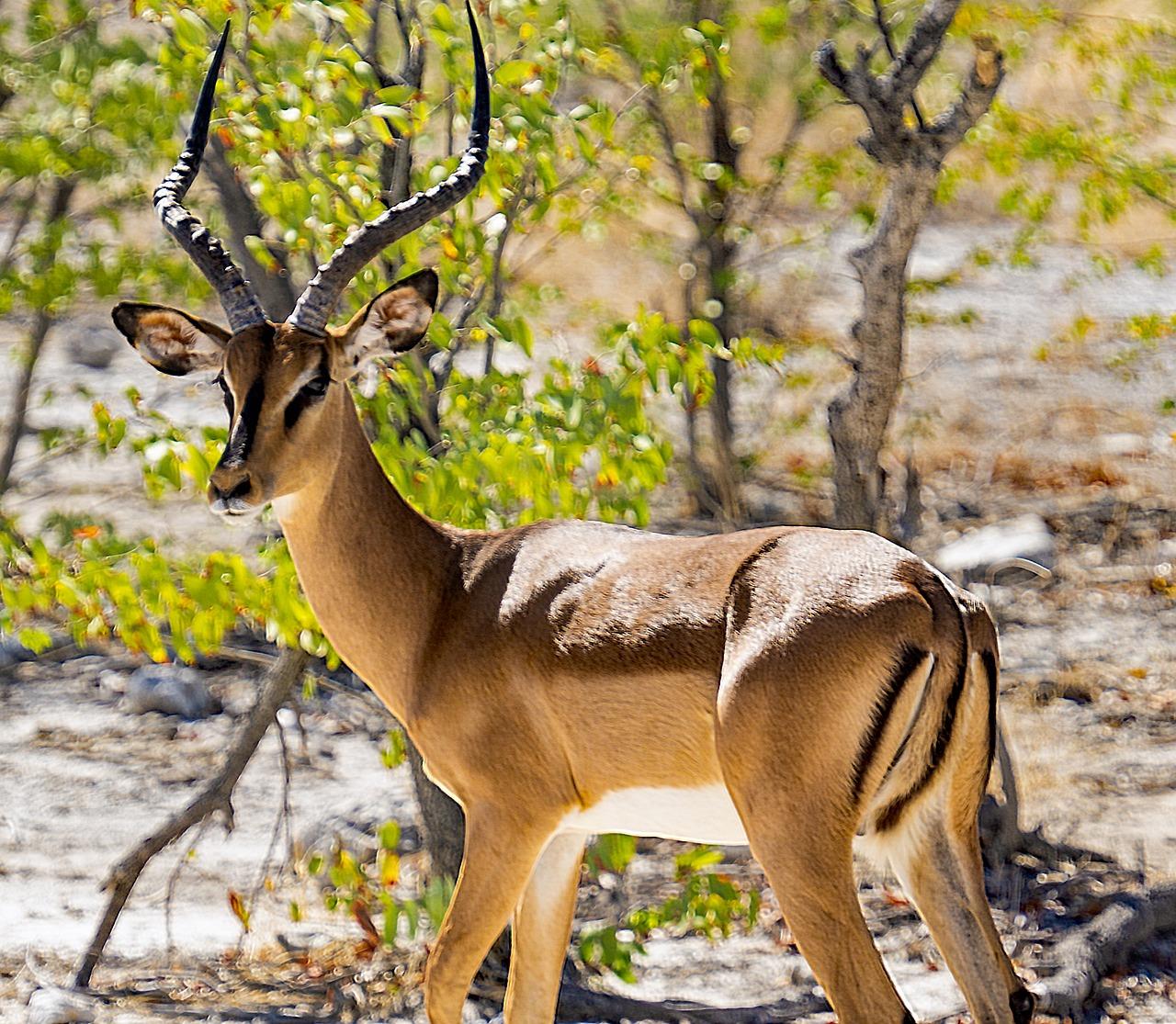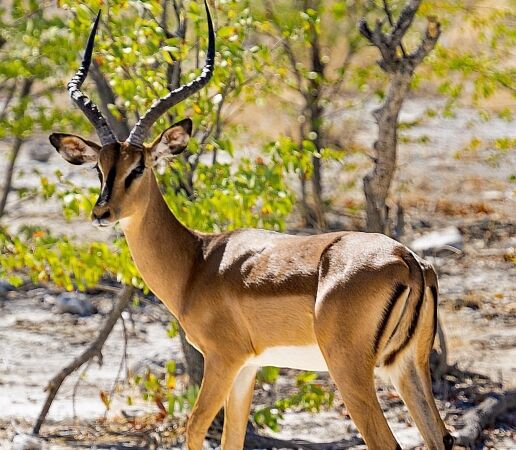

The saddle-back impala is a color variant of the common impala (Aepyceros melampus). The impala is a common and popular target when African plains game hunting in South Africa.
These colored impala are not a subspecies, but rather color variants that have been bred on South African game farms employing selective breeding methods.
There are four impala color variants:
South Africa has abundant wildlife, and the best location to target color variants of the impala when hunting in South Africa is the famous Limpopo province. The conservation status of the impala is listed by the International Union of Conservation of Nature (IUCN) as least concern.
These herbivores browse the plains, grazing on a selection of shrubs and leaves. Impala thrive in habitats of woodlands with some trees, grasslands, and savannas. Grassy regions with plenty of vegetation allow them to hide from predators such as cheetahs, lions, hyenas, and leopards.
Name:
Aepyceros melampus
Male Weight:
110-160 pounds
Male Shoulder Height:
30-35 inches
Gestation Period:
6-7 months
Life span:
12-15 years
The saddle-back impala is well-suited to its savanna environment, with a sleek coat that aids in regulating its temperature and blending into the landscape.
The saddle-back impala is a medium-sized antelope with a white underbelly and a reddish-brown coat that has a distinctive darker saddle-like marking across the back. A narrow black line runs along the middle of its lower back to the tail, and a vertical black stripe is found on the back of each thigh. Only males have beautiful lyre-shaped horns that grow to 15-35 inches in length.
Saddle-back impalas can be hunted through various hunting techniques, including ambushing them from a blind overlooking a water hole, as they come to drink. Alternatively, stalk the herd when they are most active and grazing in the early morning or late afternoon, but this is a challenging stalk to complete undetected, with so many sets of eyes and ears around!
Impalas are renowned for their exceptional hearing, keen sense of smell and excellent eyesight. These factors contribute to ensuring a challenging impala hunting adventure! The saddle-back color variant is a rather unique trophy when hunting in South Africa, and an option to include in an African plains game hunting safari - and your trophy case back home!
Should it be legal, a .22 caliber could be used. With this size caliber there is no margin for error and shot placement on a hunting safari is critical.
Search from our range of Hunts across various popular destinations in Africa.
Find A Hunt